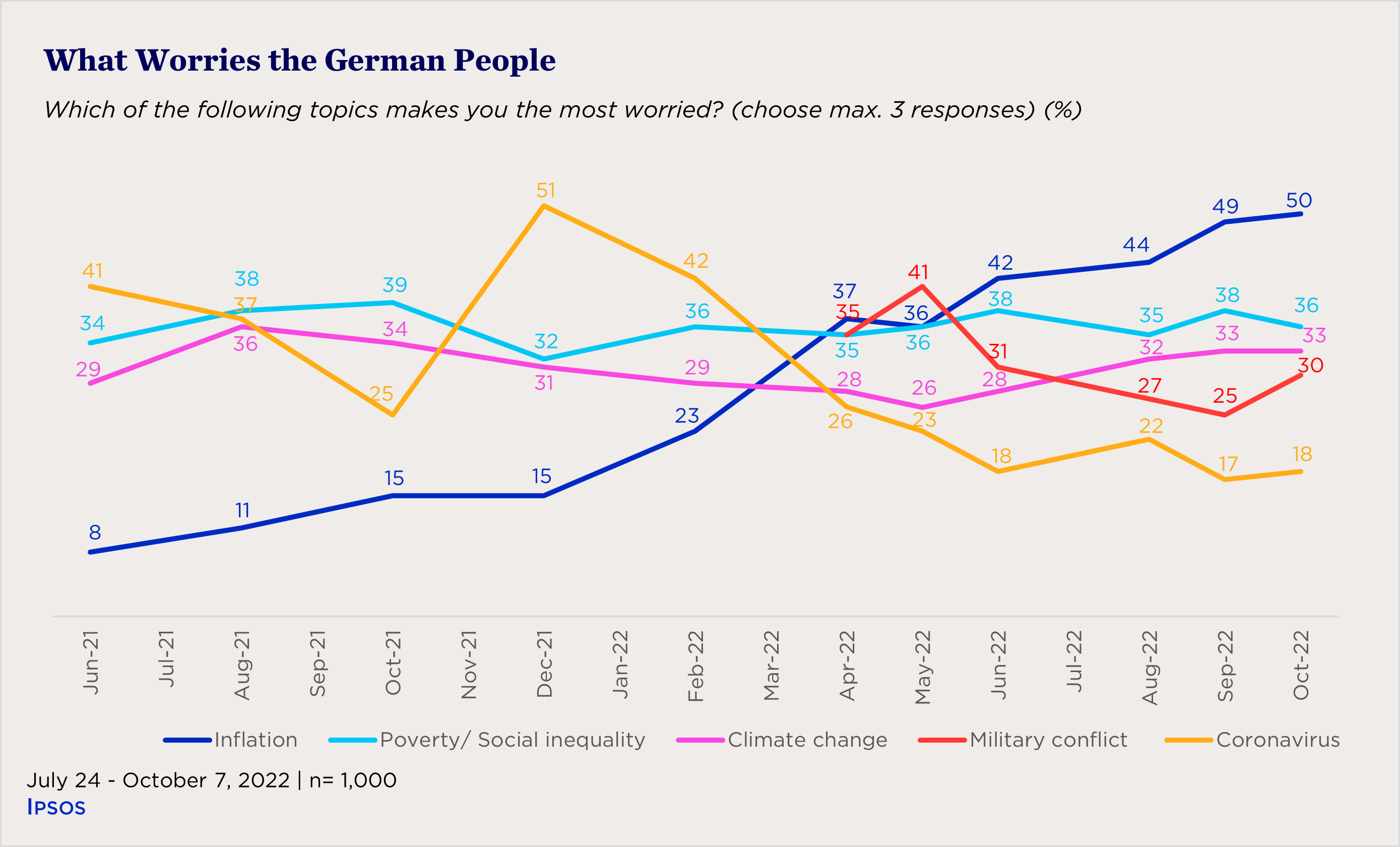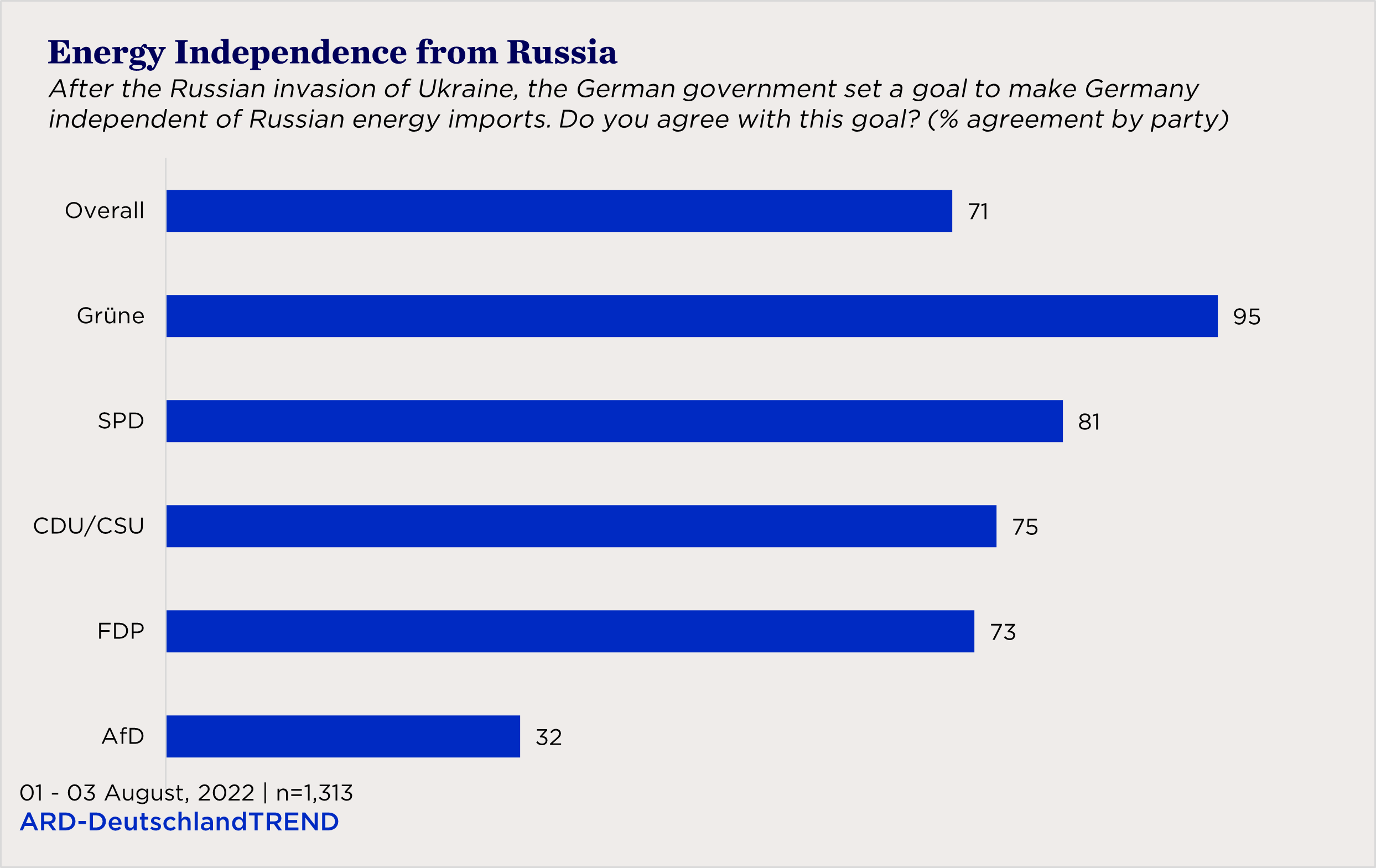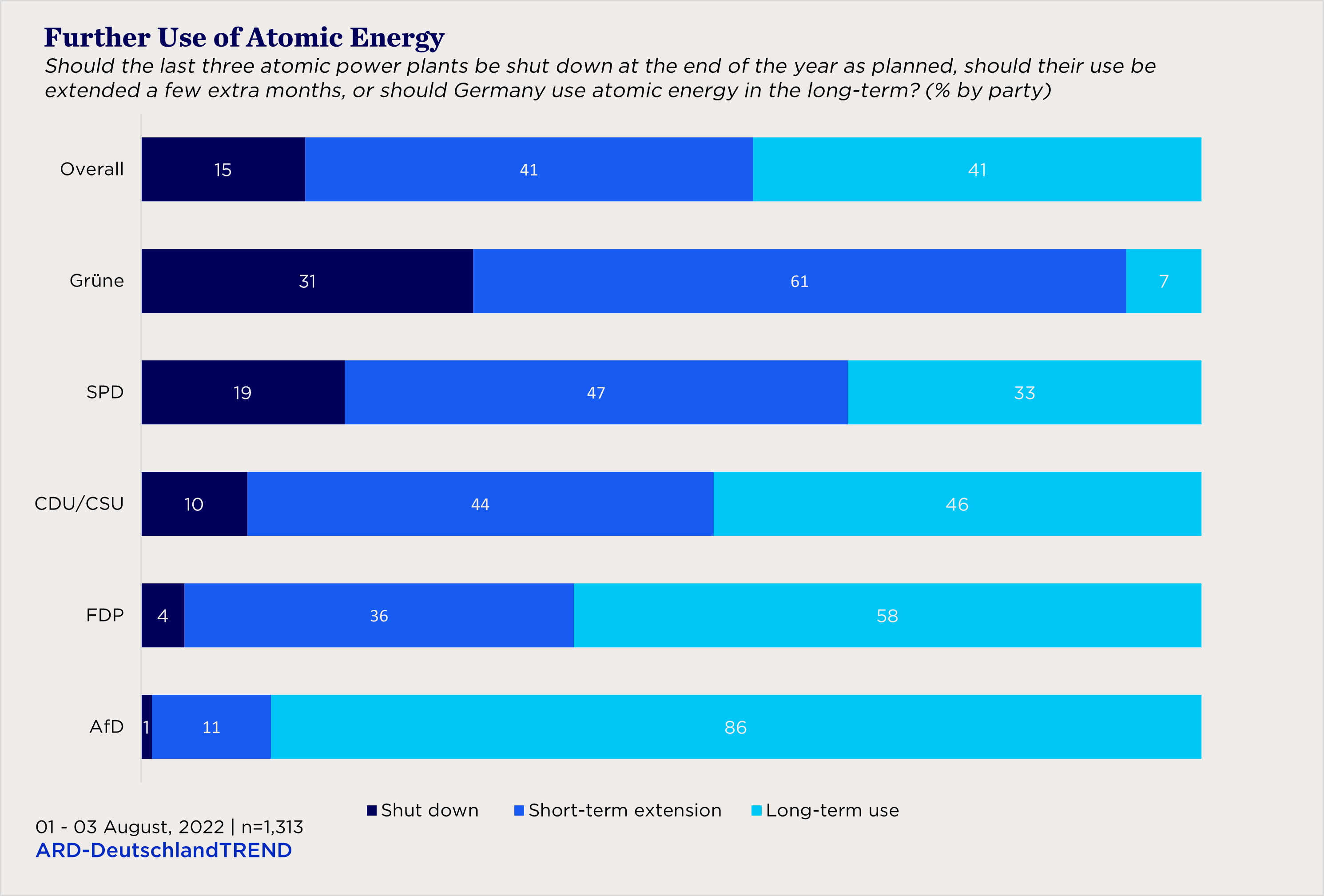European Energy Crisis Shifts Germany's Power Priorities

Russia’s war in Ukraine has sparked a domestic push toward alternative energy sources.
Since the beginning of the war in Ukraine in February 2022, Europe has been plagued with a dilemma. While most countries openly condemned Moscow’s actions, many also depend on Russia for energy. In 2021, 40 percent of the European Union’s imported gas came from Russia, giving the Kremlin a degree of leverage over the region as leaders formulate their policy responses to the conflict. At the start of September, Russia exercised this leverage by closing the Nord Stream-1 gas pipeline indefinitely, leaving European countries in a difficult spot.
Germany, particularly dependent on Russian gas, has been hit hard by these changes. In June 2022, the country received 26 percent of its imported gas from Russia (compared to 55 percent in 2021). The need for Russian gas is so great because about half of German households heat their homes with gas, and it is the third-largest source of German electricity (17 percent in 2021) after coal (26%) and wind energy (19%). The decrease in imports of Russian natural gas has been a significant blow to Germany’s overall energy landscape.

The absence of Russian gas supply has caused a serious cost-of-living crisis for many Germans, and concerns about inflation are now greater than public fears about the war itself. As Ipsos polling from October 7, 2022 shows, inflation tops the list of concerns for the German public at 50 percent, followed by poverty or social inequality (36%), and climate change concerns (33%). Worries about inflation have been steadily rising since June 2021, when only eight percent of Germans named it among their top three concerns. In the early months of the war in Ukraine, German concerns about inflation and military conflict were roughly equal. But since May, concern about military conflict has trended downward while inflationary concerns have gone in the opposite direction. Indeed, as the war in Ukraine drags on—and Russia’s position in Ukraine slowly deteriorates—Germans have shifted their focus inward, away from the fighting and toward the consequences at home.

Can Germany Achieve Energy Independence?
Despite the significant role that Russian natural gas plays in Germany’s power production, polling indicates there is public will to sever ties. According to ARD - Deutschland, a German media and research company, most Germans (71%) want to see Germany become energy independent from Russia. Conducted August 1-3, 2022, this survey of 1, 313 Germans found a high level of cross-party agreement. Supporters from most large parties favor energy independence from Russia. The outlier is the far-right AfD: only 32 percent of AfD supporters want Germany to pursue energy independence from Russia, while 64 percent oppose doing so.

The ARD - Deutschland survey found a strong preference for renewable energy, as 81 percent want to see a quick expansion of wind energy as a substitute for Russian gas. Six in 10 (61%) favor adding a temporary speed limit to currently speed-limitless motorways in order to make them a less attractive transportation option and encourage the use of public transportation. On a less “green” note, 61 percent say they would accept the increased use of coal-fired power plants to fill the energy gap left by Russian gas. This is a significant shift for a country that has long called for a reduction in coal usage. In 2019, according to a poll by ZDF, 73 percent of German voters supported a quick exit from coal.
Is Atomic Energy the Answer?
Germany's other energy dilemma is the nuclear option, as the country is now caught between a history of anti-nuclear sentiments and a dire demand for energy. In part due to public opposition to this form of energy, the country planned to shut down all atomic power plants by 2021. Indeed, most German plants are closed: out of seventeen operational plants in 2011, only three remain today, and these are supposed to be shuttered by the end of the year. As of October 2022, they provide only six percent of the country’s electricity.
Despite past opposition to atomic energy, the new reality of living without Russian gas has shifted public sentiments. A poll conducted by Civey from August 2-3 finds 78 percent of Germans want to extend the use of the reactors until the summer of 2023, instead of shutting them down by the end of 2022 as was originally planned. This level of support has increased since June, when 61 percent supported a short-term extension, according toARD - Deutschland. Civey’s polling also finds that 41 percent are in favor of building new atomic power plants.
This view is not equally represented among Germany’s politica parties, as the Civey poll finds that those in favor of nuclear energy were largely CDU/CSU (center-right), FDP (center/ center-right), and AfD (far-right) supporters. Of those, only FDP is a part of the three-part coalition with SPD (center-left) and the Greens (left) formed in December 2021. ARD - Deutschland shows that 86 percent of AfD supporters favor using atomic energy in the long term, compared to 33 percent of SPD and 7 percent of the Greens. This large gap illustrates that atomic energy is a topic driving the left and the right further apart. The split between the Greens and the FDP (members of the ruling coalition) is indicative of the many difficulties that the coalition faces due to diverging views on issues such as climate, taxation, and the government’s role in the economy.

Atomic energy is, and likely will remain, a contentious issue in Germany’s domestic politics as the left and right have strong and opposite opinions. While most Germans would be willing to use atomic energy in the short term to make up for the sudden loss of Russian gas, it can only replace a small fraction of the present energy gap.
Conclusion
Despite the political debates and division over nuclear plants, atomic energy is not a viable short-term substitute for Russian gas because of Germany’s existing infrastructure. In the longer term, Berlin will need a real electrification campaign to reduce household dependence on gas for heat—a difficult undertaking as it will also increase the demand for electricity. Another alternative that Germany might consider in the medium term is to diversify its imports of natural gas, and indeed the country is looking toward Qatar and Canada as possible solutions. In the meantime, the push for energy independence from Russia persists. If renewable energy cannot keep up with the demand, Germany will be faced with a dilemma: either increase the use of coal, which goes against the country’s climate concerns, or return to atomic energy, abandoning the decades-long fight to eliminate nuclear energy production.


Related Content
 Global Economy
Global Economy
How are soaring costs affecting lives and testing political support for sanctions on Russia?
 Tech and Science
Tech and Science
The public also remains concerned about the potential for a global economic downtown, Council polling shows.
 Tech and Science
Tech and Science
The European Union has bold goals to wean itself from Russian energy. Can it succeed?
